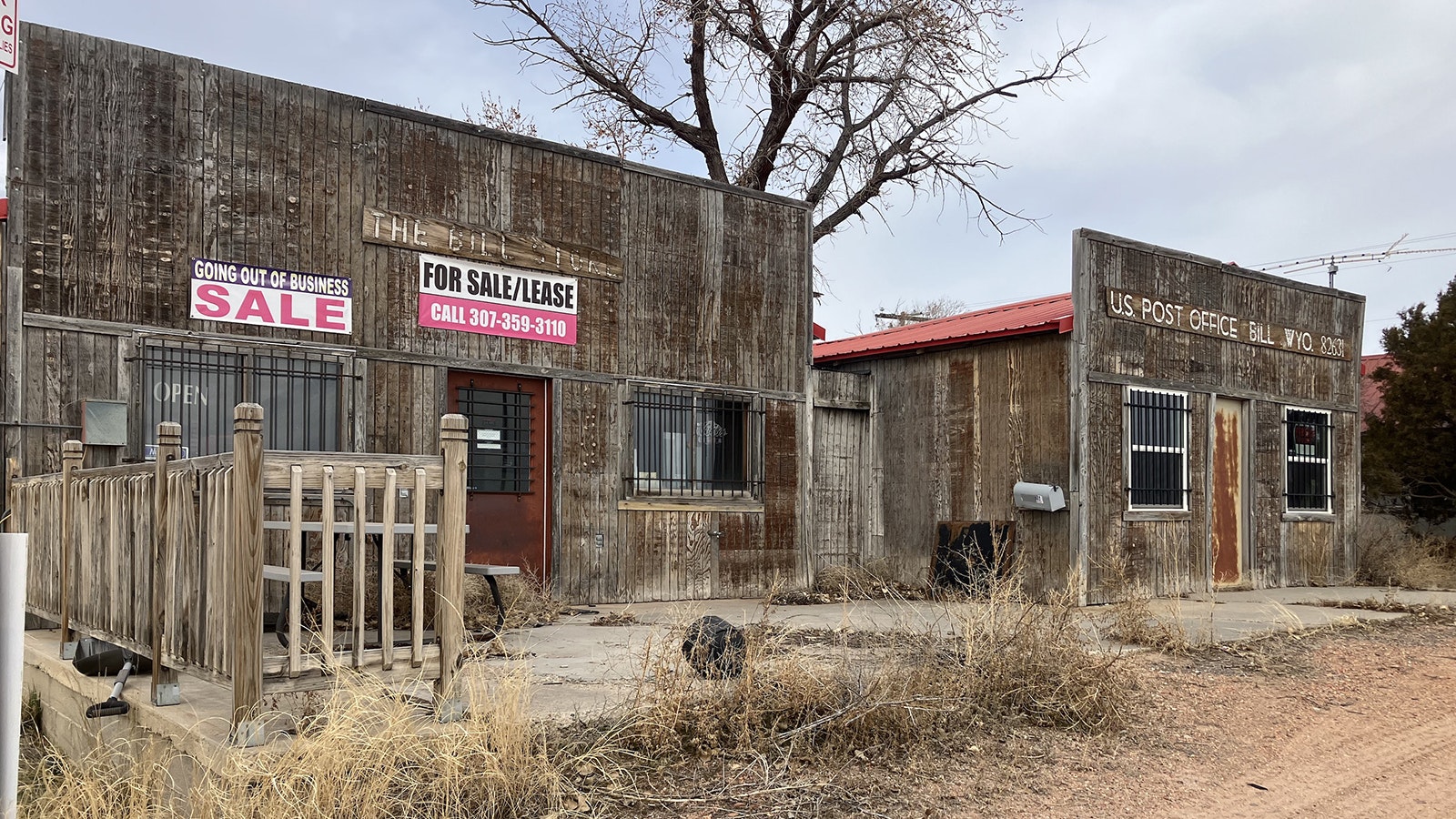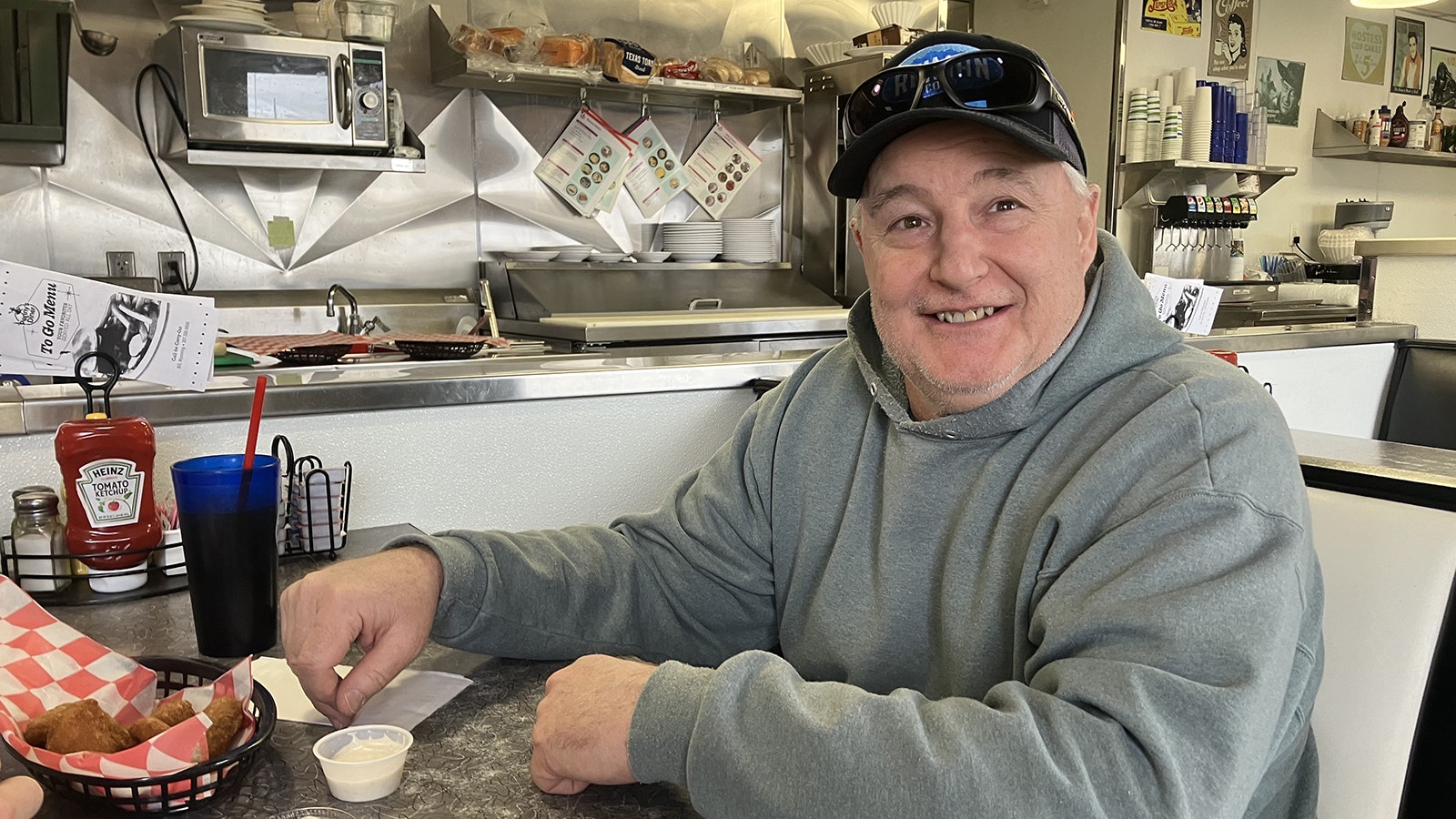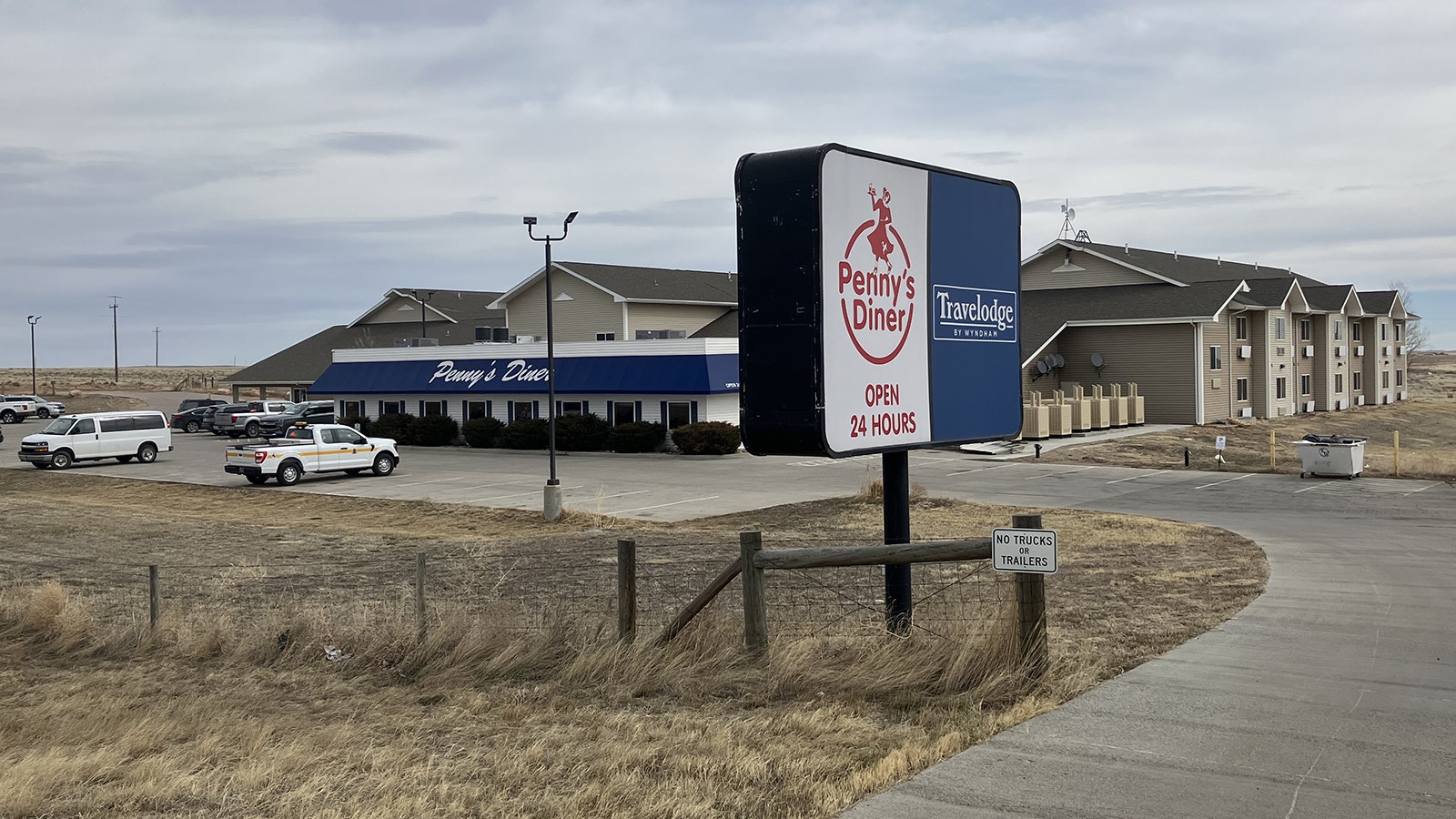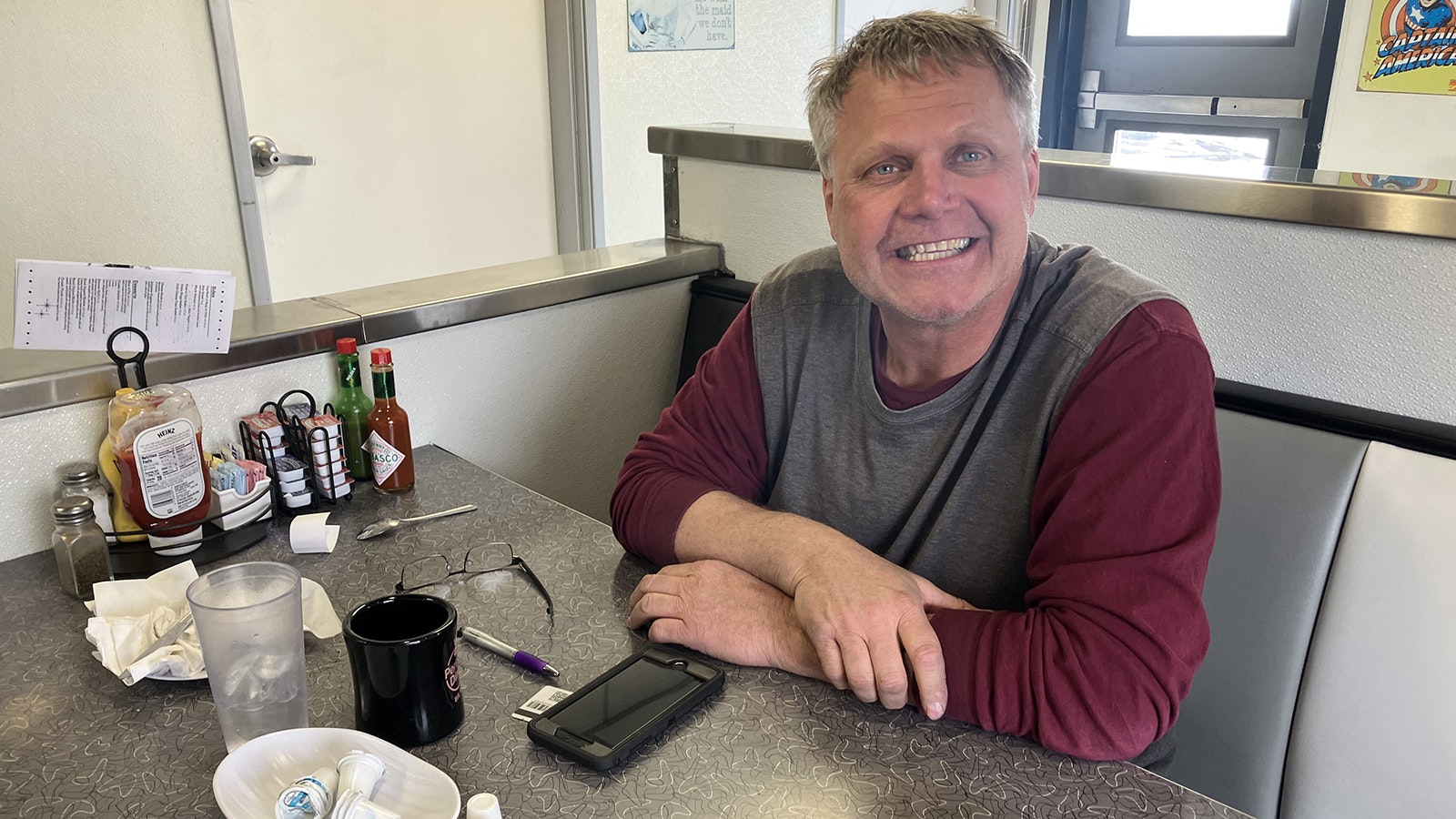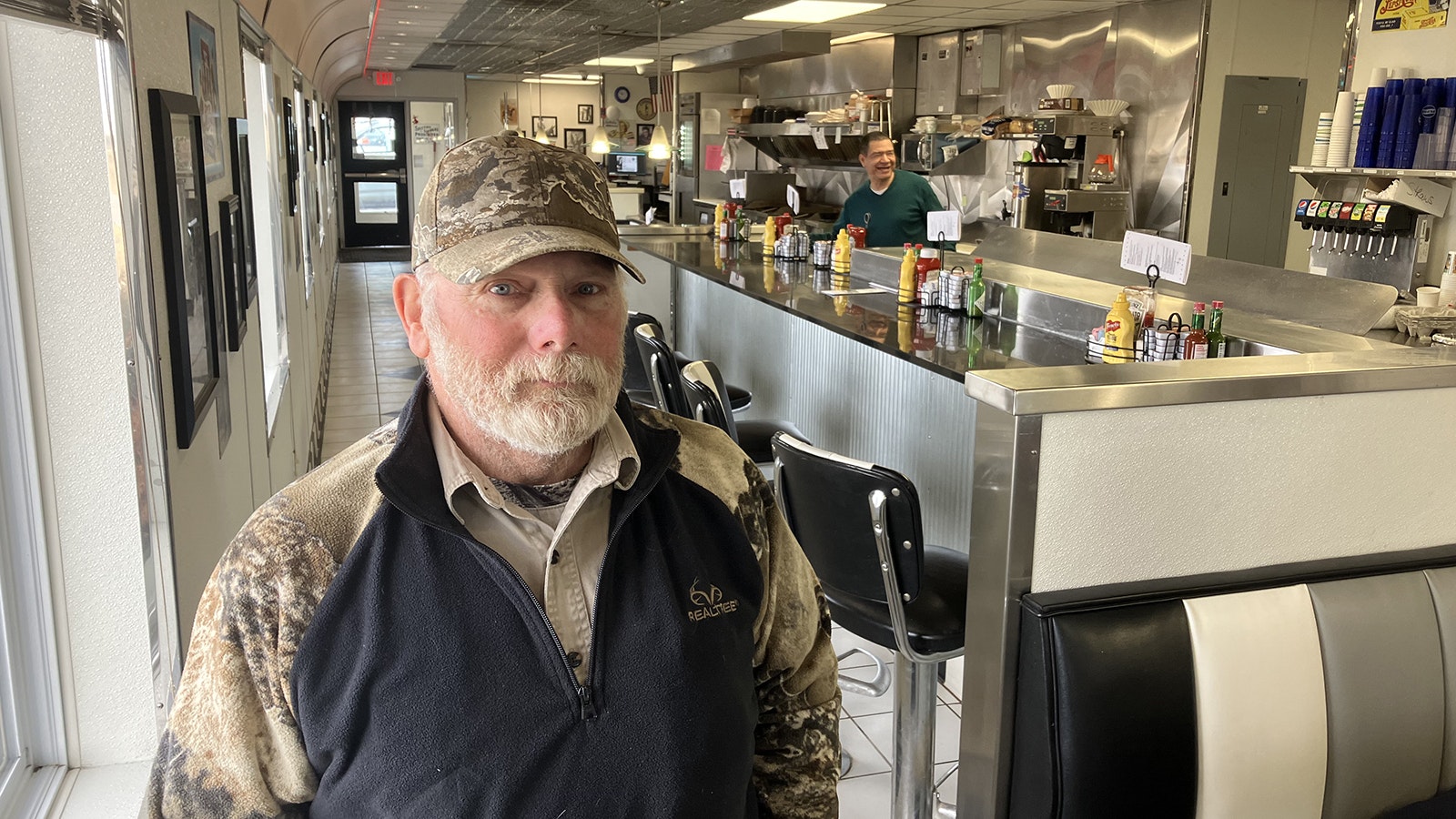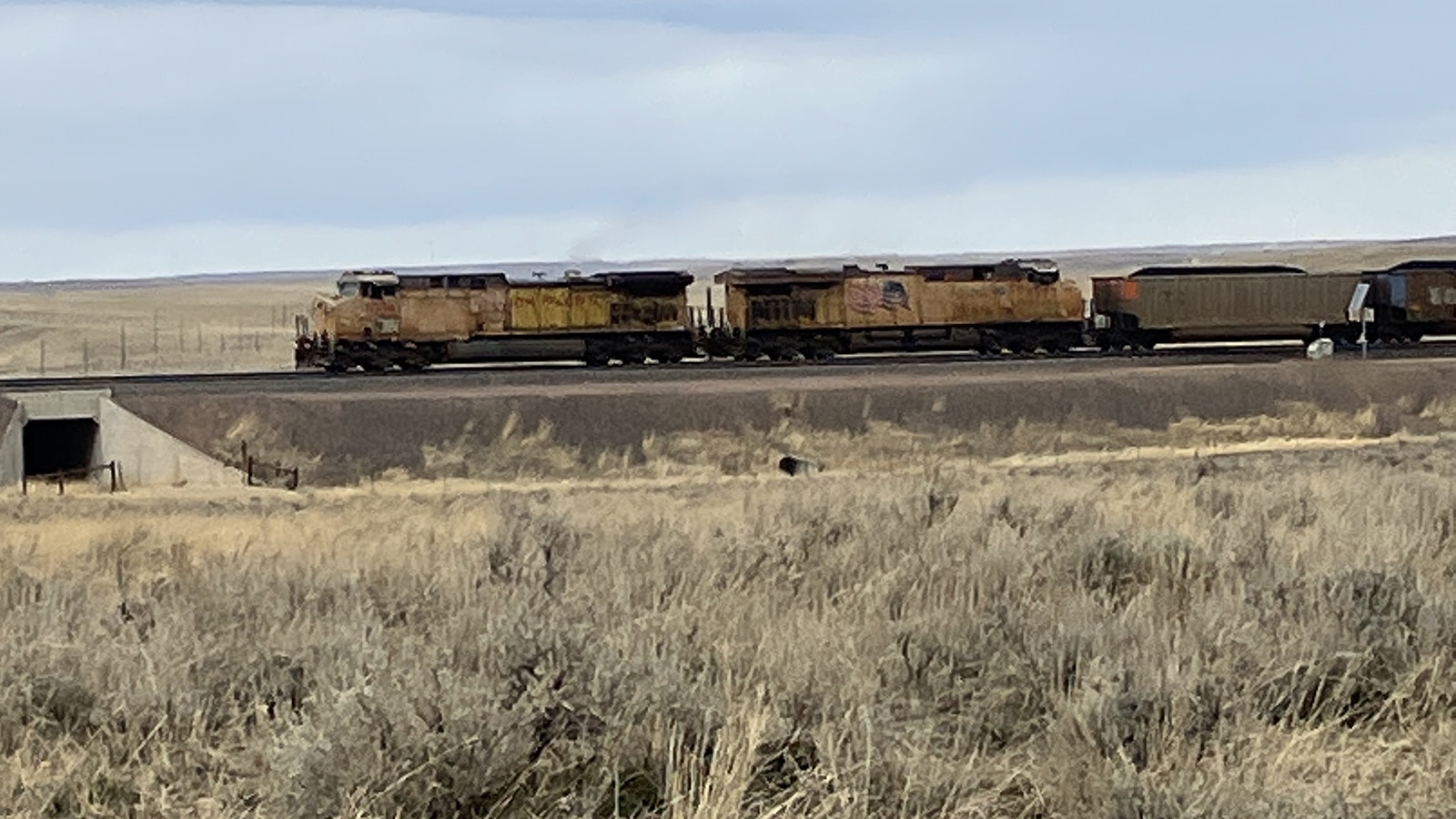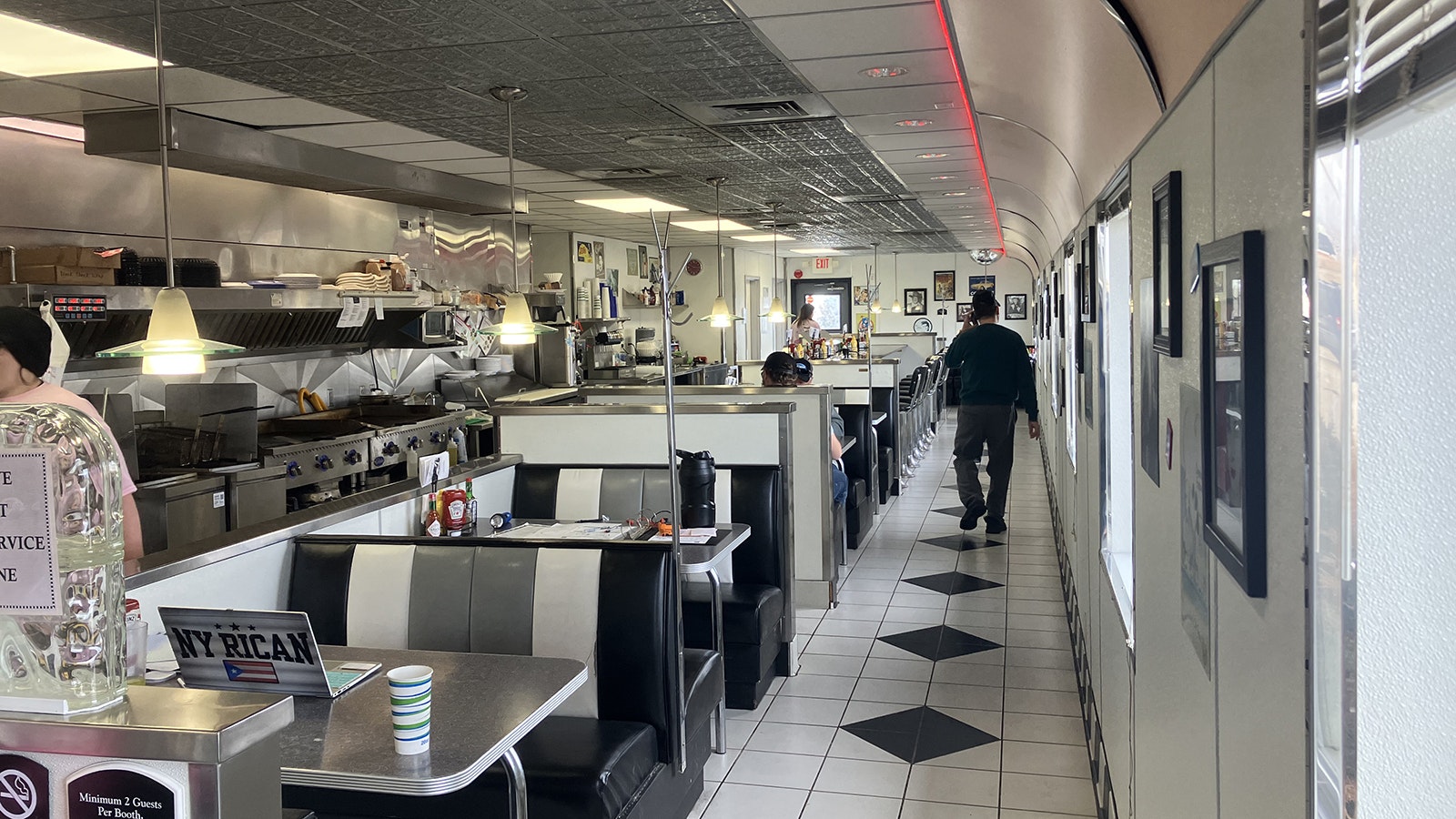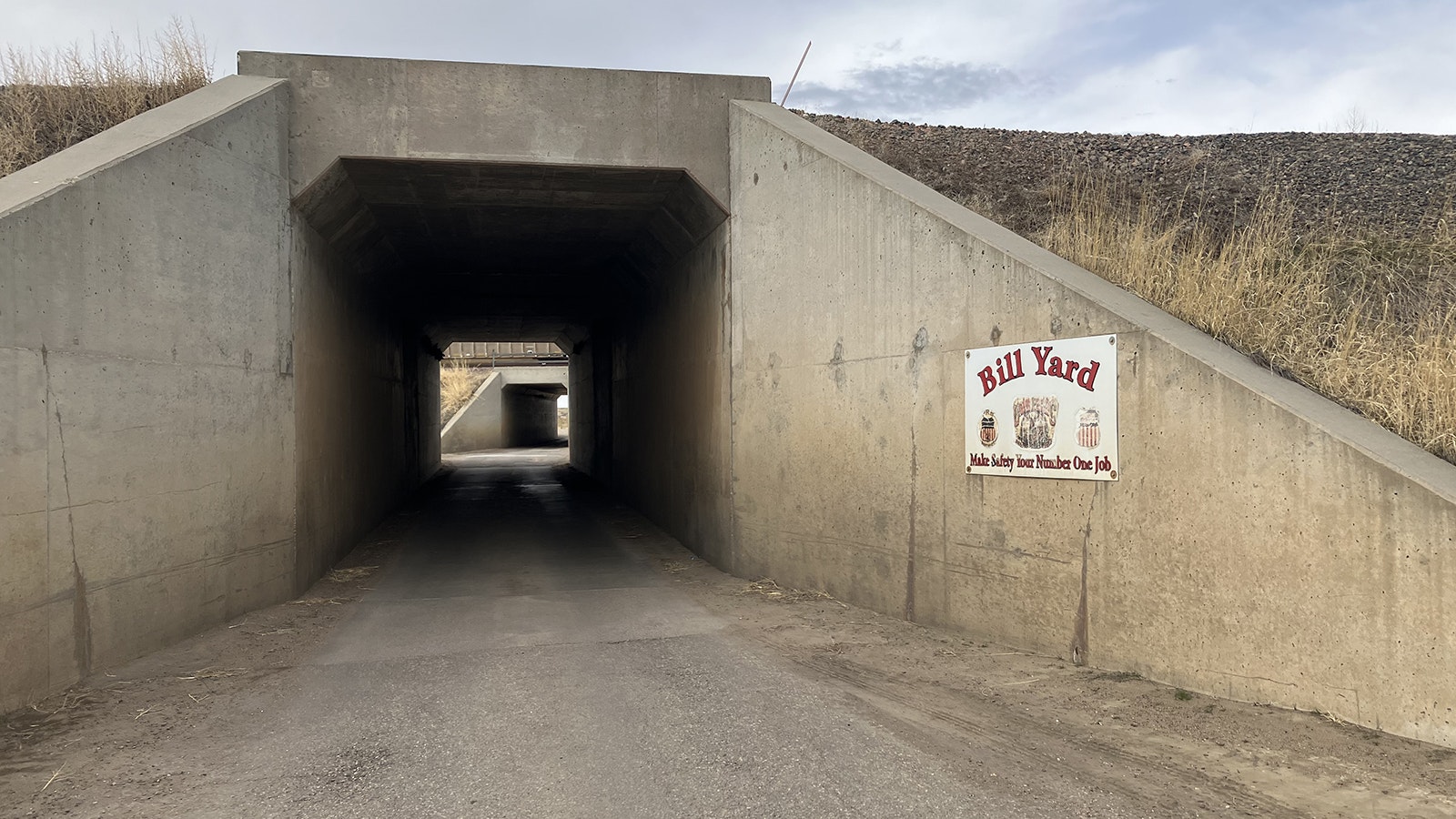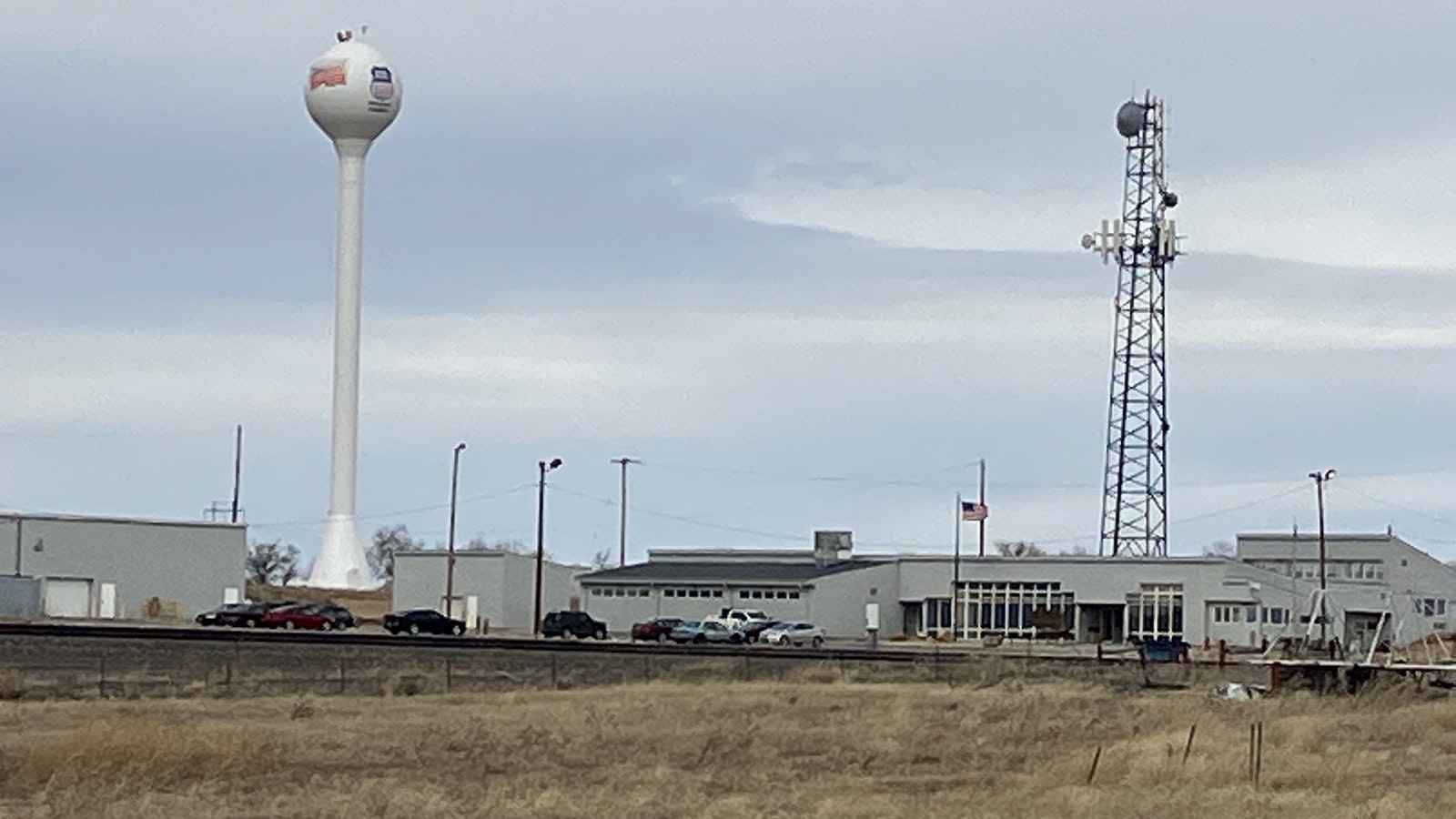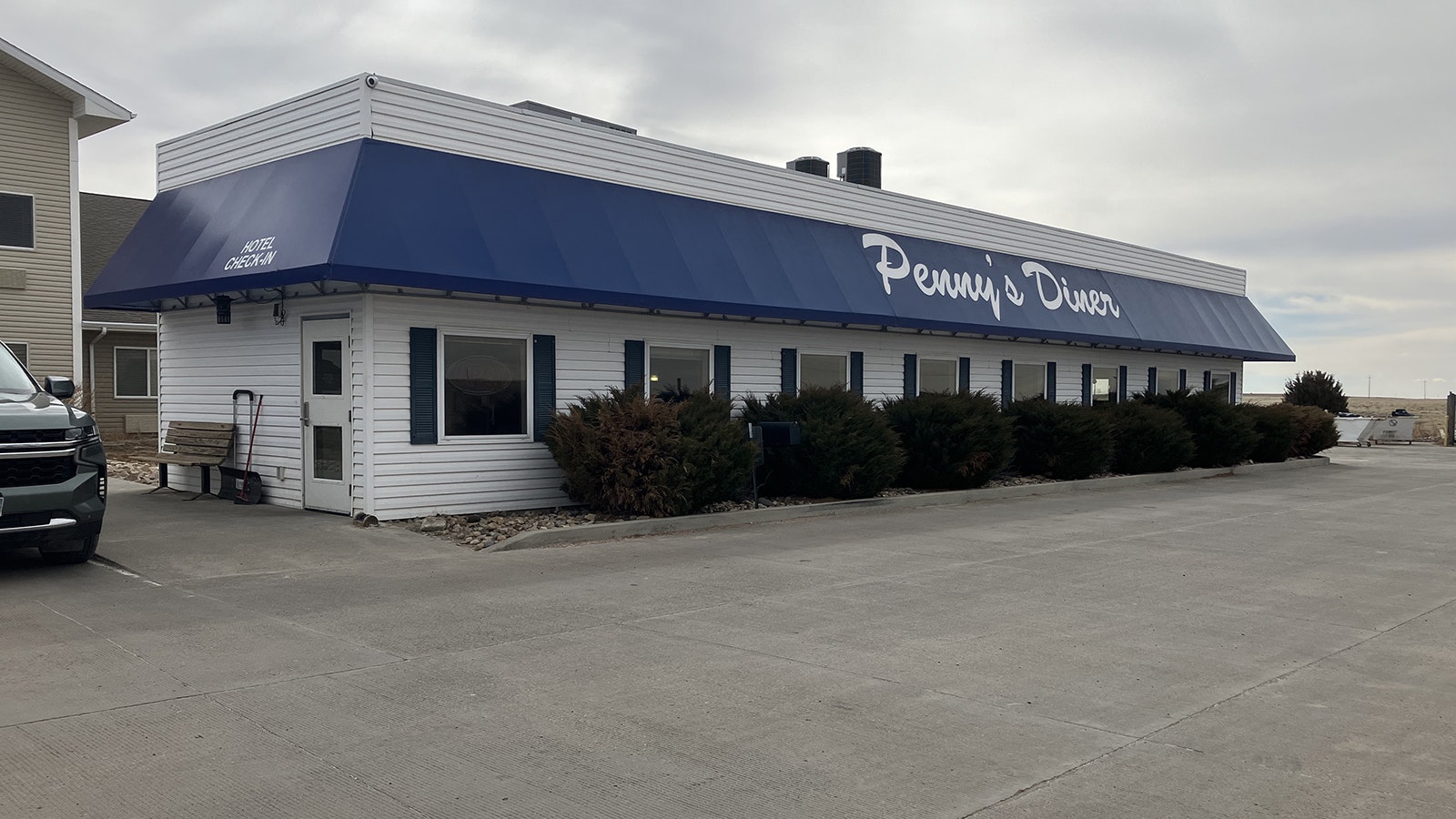Here was the mission for all drivers traveling north or south between Douglas and Gillette, Wyoming, on Highway 59.
Try and spot Bill.
For decades, the micro-town of Bill, Wyoming, has been the inspiration for that groaner of a dad joke: “Hey, kids, if you blink, you’ll miss it.”
Google says Bill is an unincorporated community that travelers seem to come up on unannounced because people keep taking the highway signs. The Wyoming Department of Transportation hopes to correct that soon and is scratching its head about where the signs went.
“It’s a mystery,” said WyDOT spokesperson Jeff Goetz. “Apparently, they are gone and we have new ones on order.”
The New York Times profiled Bill in 2008. Other state and regional news outlets have sent reporters to Bill over the years as well. For some reason, this blip on a map that sometimes doesn’t even register on the census count fascinates people.
When there were highway signs, they’d intermittently have to be changed out: “Bill, Wyoming — Population 1” or Bill, Wyoming — Population 5” or simply “Bill.”
Goetz said he is not sure what the new signs will read or if they’ll a population, but they will be back up soon.
“We ordered them today,” he said Friday.
So, Bill does still exist.
A Name Change
Avantic Lodging Enterprises CEO Brett Sundstrom said his company continues its role to keep Bill going. In fact, he might have saved it.
The company runs the Penny’s Diner and 112-room TravelLodge hotel on the east side of the highway across from a Union Pacific rail yard in the unincorporated community that consists of a couple of now-abandoned buildings.
For decades, Bill served rural residents in the area as a post office and a place to gather for community celebrations and events. But that was then.
“When we lost the post office we got referenced in with Douglas now,” Sundstrom said.
But that reference brought unintended consequences. Avantic partnered with Wyndham Hotels in 2017 and changed brands of its hotel from Oak Tree Inn to TravelLodge. Wyndham, who owns TravelLodge, listed and promoted the hotel as being in Douglas because of a ZIP code relationship.
“We had our first soccer team show up and the soccer mom wasn’t real happy that she had to drive her soccer team 35 miles to Douglas every day for soccer games,” Sundstrom said. “So, we made sure that Wyndham changed it back to Bill.”
The hotel and diner mostly cater to transitional oil field workers, but no permanent residents.
Sock Party
And then there’s the town’s name. Most would assume Bill was the name of the guy who first put down roots there. Nope.
“Converse County History,” a local book put together through interviews with county residents years ago, states that Bill got its name when families in the Dry Creek area in the northeastern part of the county decided they needed a Grange to bring ranchers together.
At the meeting, they changed their minds and decided a post office was more important.
A group of men, who all had the first name of Bill, pushed for the project, which included a “sock social” where women packed lunches in stockings instead of boxes.
Some of stockings were men’s work socks, others were women’s stockings — some with ribbons and garters. That and other fundraisers made the post office a reality in September 1919 at the homestead of Bill Barker’s.
“Barker” was the initial thought to name the post office, but that was already taken. So, they chose Bill because there were so many “Bills” in the community. Barker eventually moved and the post office had to as well.
In 1937, it moved to the west side of highway where it remains. One weathered building there with a Western-style front still states it’s the Bill Post Office in fading letters. A building next to was the Bill Store.
Both buildings have “for sale” signs with the same number.
The Town COVID Tried To Kill
Mark Horning, a retiree in Dayton, answers it. He is a Peabody Coal retiree who ran the Bill Store from 2003 until the COVID-19 pandemic. There was no post office there by then. He used that building as storage for the store.
“I’ve had the store for 21 years now. It was really busy with the oil field and the RV park next to that,” he said. “When COVID hit we couldn’t find anyone to work anymore.”
The Bill Store, which served convenience items, also had a bar and grill in the back where they served beer, Bill Burgers, pizza and more.
Union Pacific railroaders would walk across from the hotel and play pool or games that he furnished in the bar area.
Horning said he now has someone interested in the property, which includes both the store and post office buildings and a little house to north. He estimates the store was built in the 1970s and added onto in the 1980s.
Rural School
North of the store is a rural school in a portable classroom run by the Converse County School District.
The district reported the school has seven students ranging in age from kindergarten through eighth grade. When Cowboy State Daily visited last week it was empty for spring break.
North of that is the Dry Creek Community Hall, which has served as a worship building on Sundays, a voting precinct, and a place for ranchers and homesteaders in the early years to gather for social events.
Across the highway at Penny’s Diner, the walls are decorated with photos of musicians and movie stars from the 1950s and earlier. Groucho Marx with his cigar is on a wall as is James Dean.
In one of the five booths, trucking company owner Gerald Kobel, 54, was traveling north. He had just finished breakfast. His big rig parked across the road carried fuel for fracking operations and drilling rigs. Koble said he usually stops at the diner as he travels through.
“It’s the only thing in the area between Gillette and Douglas,” he said. “They have good food and reasonable prices, it’s just a favorite spot.”
Koble said when drivers of his other rigs pass through, he will offer to pay their breakfast, but “it’s always this diner.”
Good Memories
At a booth on the end, Dave Wells said he and his wife are moving to Douglas from Gillette and stopped for a meal.
“I have worked in this area for 15 years and this is the second time that I ever stopped (at the diner),” he said. “I was here in 1968 as a kid. There was a general store, a gas station and a post office. The guy back then was the postmaster, and he ran the general store and he pumped the gas.”
Wells said what he remembered most about his family’s pit stops was the sign that said, “Bill, Wyoming, Population 1.”
“I told people when I was growing up about Bill, Wyoming, population 1,” he said. “And they said, ‘What?’”
Mark Coy, in another booth, said she stopped in the diner because of a job in the area. He grew up in Douglas and as a boy would go through Bill at times.
“When I was a kid, my dad worked for the Forest Service up here in the Thunder Basin National Grasslands all the time, and so we would come in here and get a pop and a candy bar on the way home at the Bill Store,” he said. “Back then, it was just a little white, house-looking place, fairly small, but he had my favorite candy bars and a Coke. When I was growing up, that was something special.”
Rest Spot
Avantic’s Sundstrom said his corporation, which specializes in providing hotels and “fatigue mitigation” for class 1 railroads across the nation, built the hotel and restaurant in 2007 as part of a contract with the Union Pacific Railroad.
Rooms in the hotel for crews are specially designed to be dark and quiet, especially for the crews who have to sleep during the day. The hotel and diner are open to the public and railroaders 24 hours a day.
In 2023, the Bill facility booked 14,000 room nights for crews and the public.
Avantic, which also has hotel and diner facilities in Gillette, Guernsey, Cheyenne, Rawlins and Green River, said the Bill location is unique because Penny’s Diner had to be designed in a way to resist the winds that blow through the area.
During Cowboy State Daily’s visit, three trains rumbled through. Two BNSF on their own tracks and a Union Pacific on its own track.
Those tracks on the west side of the highway, and specifically the ones belonging to Union Pacific, mean Bill will not die anytime soon.
“We’re in a lot of tiny towns and remote places because the rails have been there forever,” Sundstrom said.
The hotel and diner mean that while Bill may not have any permanent residents anymore, it’s still important in some way and isn’t destined to be another Wyoming ghost town.
And when, or if, someone buys and reopens the store, there could be plenty more memorable stops for kids getting that favorite candy bar and a coke.
Dale Killingbeck can be reached at dale@cowboystatedaily.com.

